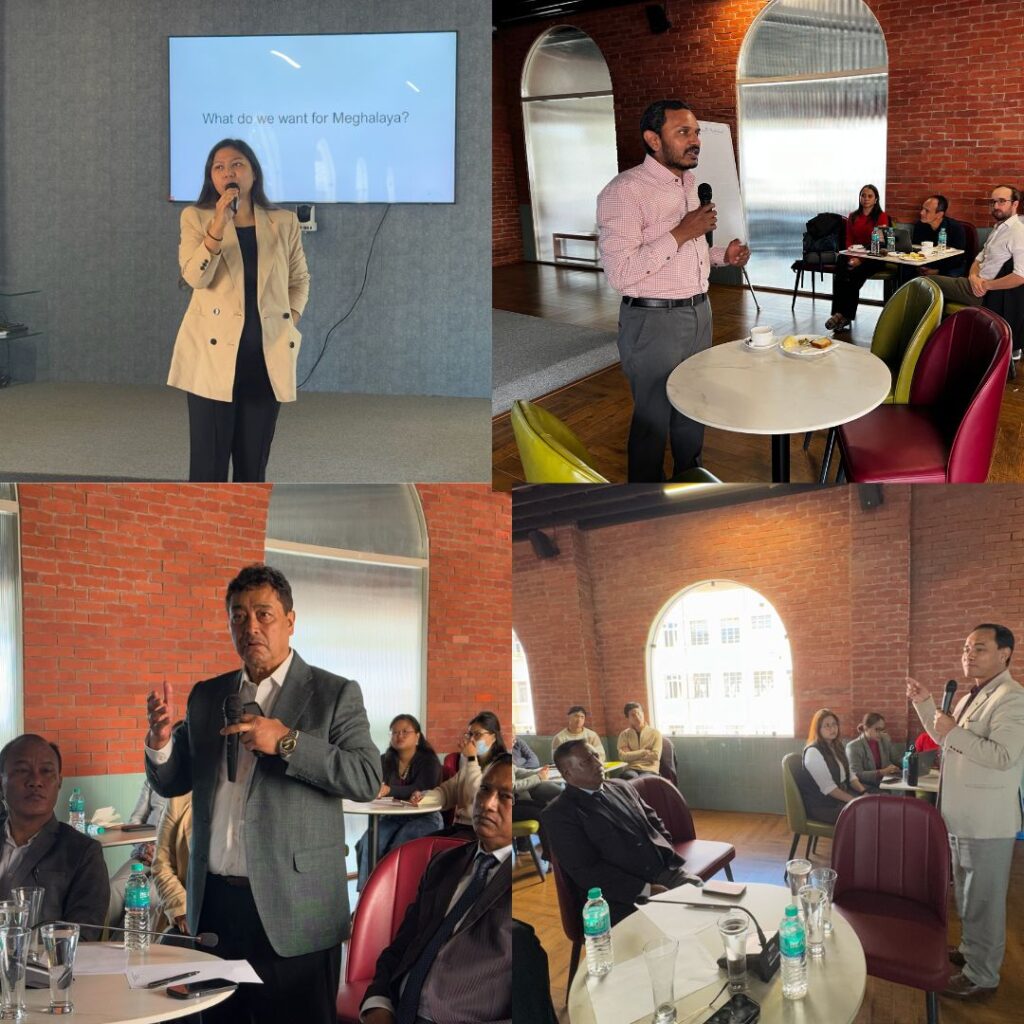A transformative two-day workshop was held on (15th–19th November 2024), bringing together Members of the Legislative Assembly (MLAs) to address the state’s pressing developmental challenges. Organized by the Government Innovation Lab (GIL), the Meghalaya Institute of Governance (MIG), and Harvard Growth Lab, the event focused on finding innovative solutions to catalyze economic growth, reduce youth unemployment, and foster resilience in the face of systemic constraints.
The workshop highlighted Meghalaya’s economic paradox. Once ahead of the national per capita income, the state now lags 30% behind the average. While central government transfers provide a lifeline for public services, over-reliance on external funds has made long-term progress unsustainable. Youth unemployment, particularly among educated individuals, and limited private sector opportunities further underscore the urgency of finding alternative engines for growth.


Discussions emphasized the need to unlock Meghalaya’s potential by leveraging its natural strengths. Tourism, agriculture, and niche exports like organic spices and medicinal plants were identified as promising sectors. Participants cited examples from Sikkim, which has achieved remarkable economic growth through tailored policies and investments, despite similar geographic constraints. The success of Sikkim’s pharmaceutical industry and educational infrastructure inspired conversations on how Meghalaya could create its own niche by investing in sustainable industries and education.
A recurring theme was the importance of fostering entrepreneurship. MLAs discussed the need to shift societal attitudes away from dependency on government jobs toward creating opportunities through innovation and private enterprise. Early entrepreneurial education in schools was proposed as a way to instil a mindset of self-reliance among Meghalaya’s youth. Participants also recognized the critical role of community leadership in driving this transformation, with traditional leaders playing a key role in mobilizing local resources and fostering collaboration.




Cultural and behavioral shifts emerged as vital elements of progress. Speakers emphasized the need to move beyond a mindset of resistance to change and embrace accountability, adaptability, and collaboration. They stressed that growth would require not only technical solutions but also a collective willingness to confront entrenched beliefs and practices. This was summed up by the observation, “People-owned governance, not government-owned governance,” as a way to promote shared responsibility for progress.

Infrastructure gaps were also a focal point, with MLAs noting how poor connectivity, limited access to markets, and high transportation costs impede economic activity. While large-scale industrialization may not be feasible given Meghalaya’s challenging terrain, the workshop underscored the potential of region-specific strategies such as agro-processing, ecotourism, and handicrafts, which align with local skills and resources.
The workshop concluded with a clear call to action. Leaders were urged to prioritize sustainable development, implement policies tailored to local contexts, and invest in education, skills training, and infrastructure. Collaborative problem-solving and long-term planning were identified as key to Meghalaya’s journey toward self-reliance and growth. As Meghalaya steps forward with renewed purpose, this workshop represents a pivotal moment in its development story. With its natural resources, cultural wealth, and committed leadership, the state has all the ingredients to chart a path toward a prosperous and equitable future.